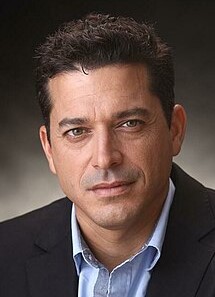In the wake of the recent Gaza conflict, Israel has intensified its efforts to counter anti-war protests and reshape public opinion in the United States. This strategic initiative is spearheaded by Amichai Chikli, a 42-year-old Likud minister. He is leading a comprehensive public relations campaign aimed at US college campuses and the broader public debate on Israel.
Chikli’s Campaign :Voices of Israel
Amichai Chikli’s campaign involves the relaunch of a controversial program initially known as Kela Shlomo. Which is now rebranded as Voices of Israel. This entity focuses on “mass consciousness activities” in the US and Europe. Voices of Israel is designed to counter criticisms of Israel. Particularly those related to the Boycott, Divestment, Sanctions (BDS) movement, and to influence the public’s perception through covert and overt means.
Funding and Strategic Partnerships
Chikli’s ministry has allocated significant resources to these efforts. From October through May, the ministry spent approximately $8.6 million on advocacy initiatives. These funds are channeled through non-profits and other entities that often do not disclose their donor information. Key American advocacy groups, such as the Institute for the Study of Global Antisemitism and Policy (ISGAP), have played pivotal roles in shaping congressional hearings and public discourse on antisemitism and Israel.
Legislative Impact and Advocacy Successes
ISGAP’s research has been instrumental in influencing US lawmakers. During a December congressional hearing on antisemitism among student anti-war protesters, ISGAP’s findings were cited extensively. This hearing included a notable confrontation between Representative Elise Stefanik and Harvard University’s then-president, Claudine Gay. This garnered widespread media attention and led to Gay’s retirement.
The success of ISGAP and other advocacy groups has extended to the legislative arena. The adoption of the International Holocaust Remembrance Alliance’s (IHRA) definition of antisemitism, which equates certain criticisms of Israel with antisemitism, has been a significant focus. Several states, including Georgia, South Carolina, and South Dakota, have enacted laws incorporating this definition. Certainly with potential implications for free speech and academic freedom.
Broader Advocacy Efforts
Other groups associated with Voices of Israel have launched various initiatives to bolster support for Israel. For example, the National Black Empowerment Council published an open letter from Black Democratic politicians pledging solidarity with Israel. CyberWell, another pro-Israel group, has collaborated with social media platforms like TikTok and Meta to monitor and suppress content deemed anti-Israel.
Controversial Tactics and Covert Operations
The campaign has not been without controversy. Reports have surfaced about the use of hundreds of fake accounts to post pro-Israel or anti-Muslim content on social media platforms. The Israeli ministry of diaspora affairs, which oversees Voices of Israel, has denied direct involvement. Although it acknowledges its broader strategic objectives.
Challenges and Criticisms
Critics argue that these efforts infringe on free speech and academic freedoms, particularly on US college campuses. The use of the IHRA definition of antisemitism is seen by some as a tool to silence legitimate criticism of Israel’s policies. Additionally, the lack of transparency regarding the funding and operations of these advocacy groups has raised concerns. Which is about the influence of foreign entities on US policy and public opinion.
Conclusion
Israel’s concerted push to counter anti-war protests and reshape public debate in the United States is a multifaceted and well-funded endeavour. Led by Amichai Chikli, this campaign leverages both overt and covert tactics to influence public opinion. Thus it shapes legislation, and suppresses dissent. While these efforts have achieved significant successes, they also raise important questions about free speech, academic freedom, and the transparency of foreign influence in domestic affairs. As these initiatives continue to evolve, their impact on US-Israel relations and the broader discourse on Israel’s policies will remain a critical area of scrutiny.





